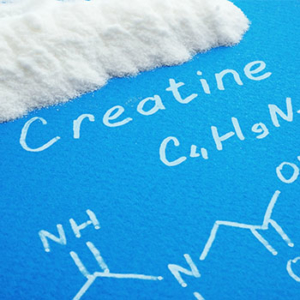 Reader Alert! This month I am writing about a fitness supplement, which has to do with coming off Thanksgiving. For me, it is about REALLY sticking to a gym schedule this time of year. Diet-schedule-sleep disruptions can mess up a good fitness plan. That’s why this month, I am focusing the blog purely on ‘fitness’ stuff, more specifically, a single supplement.
Reader Alert! This month I am writing about a fitness supplement, which has to do with coming off Thanksgiving. For me, it is about REALLY sticking to a gym schedule this time of year. Diet-schedule-sleep disruptions can mess up a good fitness plan. That’s why this month, I am focusing the blog purely on ‘fitness’ stuff, more specifically, a single supplement.
As an ex-athlete and current fitness enthusiast, I am always looking to improve myself in any form. Over the past months, I have researched using creatine to supplement the gym and athletic performance. I learned some exciting things about this supplement and wanted to share with you, hoping that if you have ever thought about using creatine and are still wrestling with the idea, my research will help illuminate the way for you.
 Here is a snapshot of what I found.
Here is a snapshot of what I found.
Athletes and fitness enthusiasts have used creatine as a health and performance supplement for decades. It’s one of the most heavily researched supplements on the market. Anyone looking to support and build lean muscle or improve their exercise performance should talk to their doctor about creatine supplements. Our bodies produce 1-2g/day of creatine in our kidneys, liver, and pancreas. It can also be absorbed by eating red meats, salmon, and supplementation (Creatine Monohydrate.) 90% of the creatine we absorb goes to our muscles.
Creatine helps our muscles with short, fast bursts of energy like sprinting, Olympic lifting, and squatting and directly affects our muscles to help those short bursts. It also has a “Cell Volumizing effect,” which pulls more water into the muscle cells. Over time, and with some weight training, this could result in more muscle building and reducing protein breakdown.

The primary function of creatine as a supplement is to increase muscle size and strength.
It is the most effective supplement on the market for the task. Initially, it’s because the water is pulled into the muscle cells, but it will activate specific channels that help muscle tissue growth, strength, and performance over time.
One of the exciting studies I came across is twenty-five male subjects comprised of seven control, eight creatine, and ten placebo groups participating in a 42-day strength training program. At the end of the program, the control and placebo groups did not change their lean, skeletal muscle mass. However, the creatine group saw gains of 4.4lbs in mass.
Creatine has many positive uses for athletes and fitness enthusiasts.
Aside from protein, creatine is probably the most studied and effective supplement you can buy, and it’s very cheap. Just as I would suggest you talk with your financial advisor about decisions related to your retirement or overall financial plan, please speak with your nutritionist/diet professional if you have an interest.
December 2021




